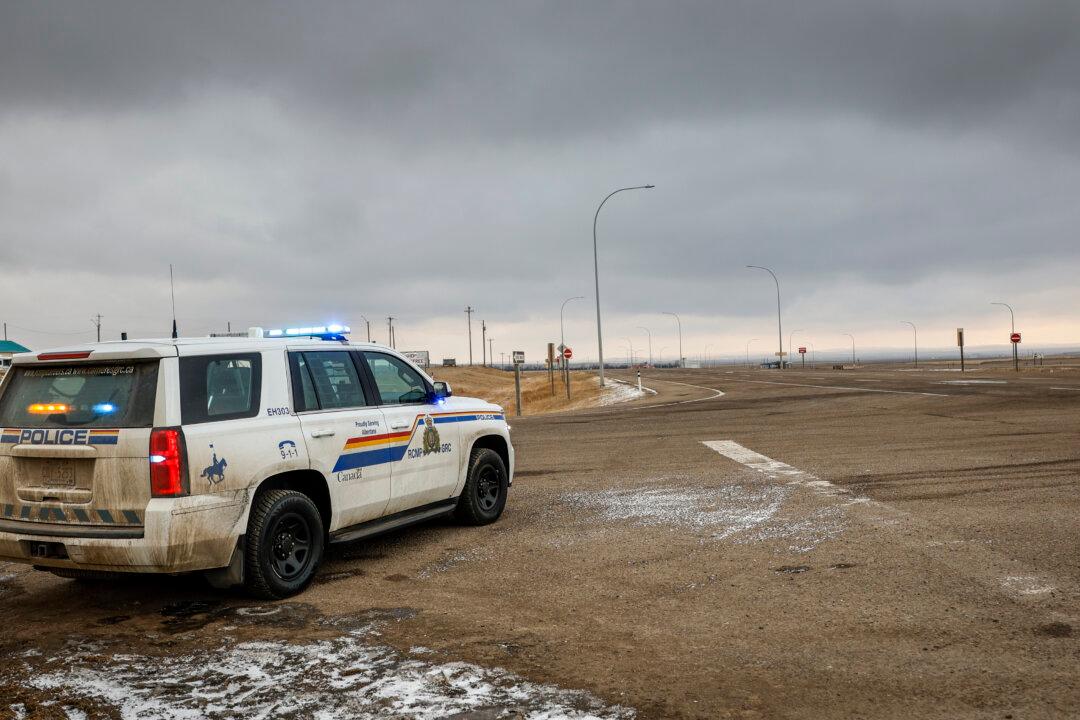The RCMP used unauthorized wiretaps and undercover officers to collect intelligence on protesters who blockaded the border crossing at Coutts, Alberta, earlier this year during the Freedom Convoy protests, court documents show.
A provincial judge unsealed the documents, obtained by the Globe and Mail and several media outlets, which were used by the police to obtain warrants for a raid on a group later charged for conspiracy to kill police officers.





